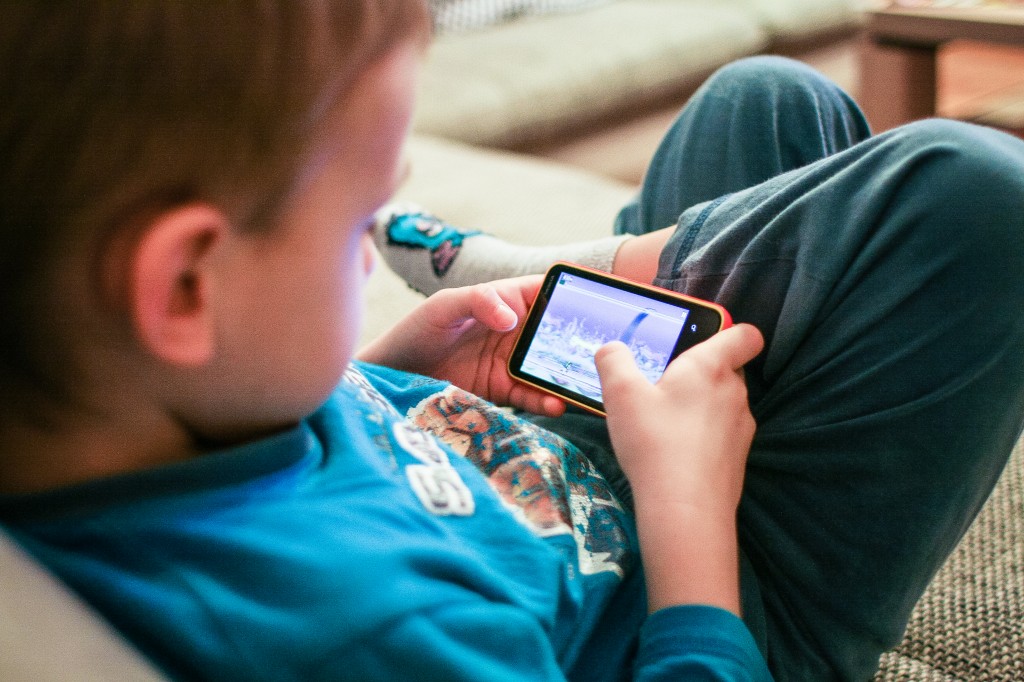We live in a time where e-mails, texts, social media, games, the latest news and even movies are at our fingertips. With smartphones on the rise (about 58-65% of Americans own one), the average American spends 23 hours each week using some online communication. And, according to a recent study by Nielsen, the average American adult spends 10 hours per day with some type of electronic media.
Certainly, many of those hours may be chalked up to work and other important or necessary matters. But many of us are guilty of interacting more with our friends and family members on sites like Facebook, Pinterest, Twitter, and Instagram than we do in person. And, while technology is supposed to make life easier, one could argue that being plugged in all of the time (ie. having constant access to work emails), can also be detrimental.
Our online presence is a great way to numb, to disconnect, to tune out real life problems and relational struggles. It also feels like a good way to connect, have down time, and a little bit of fun. And it certainly can be. Of course, it also can create a new set of problems. Problems like not feeling good enough, creating cyber relationships that are detrimental or hurtful to partnerships/marriages, feeling out of touch with reality, cyber bullying, comparing ourselves to others, overworking as we are always plugged in, sexting, and perhaps most importantly, being disconnected from the people who matter the most to us.
When I think of how this plays out in everyday life, I think of times where I have watched family members or partners eat an entire meal together at a restaurant without actually speaking to one another, captivated by their smartphone. I think of children who struggle to get their parent’s attention as they browse Facebook. I imagine husbands and wives lying in their dark room at night illuminated by the glow of a television or smartphone instead of snuggling up together at the end of a long day to reconnect. I think of young people and adults feeling depressed and isolated because their online persona or avatar is not meeting up to their counterparts’ online identities. And I think of more and more people being “connected” yet feeling desperately and utterly disconnected. And certainly, this could be and has been all of us at some point, I would imagine.
As parents, it is important to know that children and adolescents are at greater risk in their use of social media due to “their limited capacity for self-regulation and susceptibility to peer pressure,” according to Medical News Today. And, excessive internet use has been linked to loneliness, depression, and other emotional issues. Regardless of our age, it would be good to examine our online presence and how it is impacting our life offline. If you answer yes to any of the following statements below, limiting or changing your Internet habits might be beneficial.
- I have gone without eating, sleeping, or meeting other basic needs because of the Internet.
- I feel extremely bothered when I can’t connect or get on the internet.
- I frequently catch myself surfing when I’m not really interested.
- When I get online to do something briefly, I find myself engaged in sites and apps outside of my original intention.
- I spend less time than I should with family, friends, work, or schoolwork because of the time I spend online.
- I have tried unsuccessfully to spend less time on the Internet.
- I have gotten cues or feedback from loved ones that I am not present with them because of my online activity.
- I often find myself surfing the web in the middle of the night instead of sleeping.
- There is conflict in my relationships because of the time I spend or because of my activity online.
- If I ever have a spare minute, I immediately grab my device to go online.
- I frequently am comparing myself to others (even friends) online.











